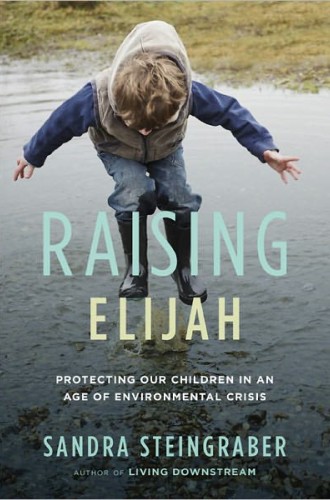Let’s talk about toxins
Read our interview with Steingraber.
It's time for the talk, says Sandra Steingraber. No, not the talk about the birds and the bees—although as a parent she knows about that one too. It's time, she says, for the talk about the pollutants that are infiltrating our lives and threatening the health of all of us, especially our children. The sex ed talk is actually much like the environmental ed talk, Steingraber says:
The two tales shared a common epistemological challenge: They are both counterintuitive. In the former case, you have to accept that your ordinary existence began with an extraordinary, unthinkable act. In the latter case, you have to accept that the collective acts of ordinary objects—cars, planes, dishwashers—are ushering in things extraordinary and unthinkable.





